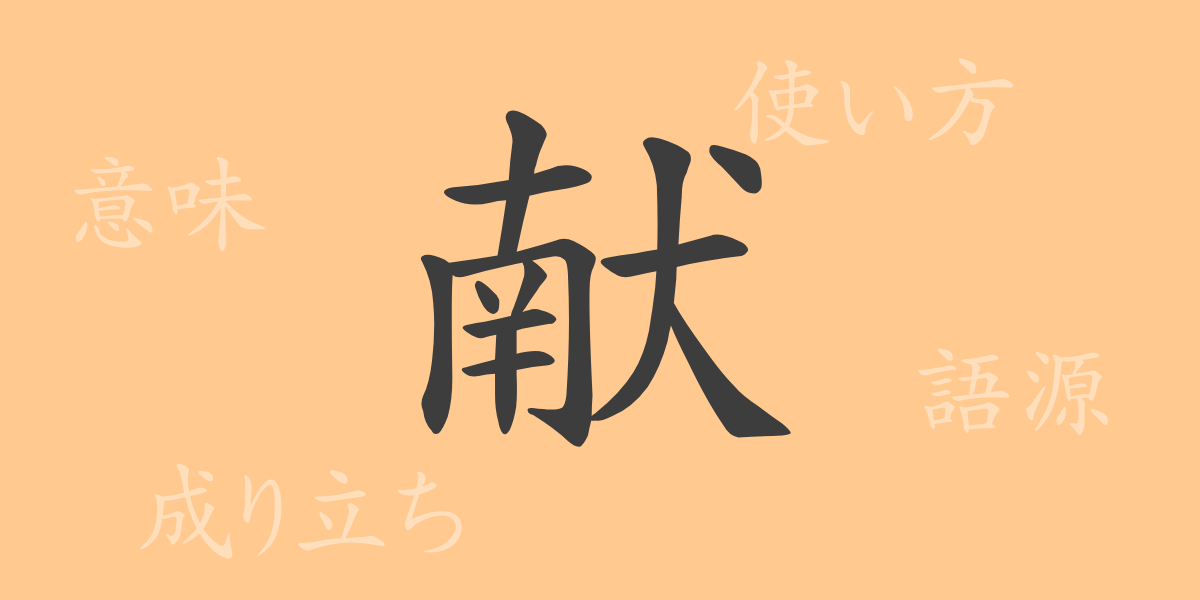The Japanese language is rich with kanji, each bearing its unique history and meaning. “献” (けん, ken) is one such commonly used kanji, deeply rooted in our daily lives. This article delves into the origins, meanings, usage, readings, and idiomatic expressions of “献” (けん, ken), offering a comprehensive understanding of this kanji. By exploring the importance of “献” (けん, ken) in Japanese culture, you can appreciate the profound history and cultural context behind the words.
Origins of 献 (けん, ken)
The kanji “献” (けん, ken) has evolved from ancient Chinese oracle bone script. Initially, it depicted a person offering meat to the gods, symbolizing devotion and sacrifice. This act of offering led to the broader meanings of presenting gifts and tributes. In Japan, “献” (けん, ken) has long been used to signify offerings and dedication, making it an essential character in religious and cultural contexts.
Meaning and Usage of 献 (けん, ken)
The kanji “献” (けん, ken) primarily means “to offer” or “to present.” It is often used in contexts where something is dedicated to deities or respected individuals. Additionally, it conveys the concept of self-sacrifice, as seen in “献身” (けんしん, kenshin), where one devotes their time and effort selflessly. Thus, “献” (けん, ken) is a versatile kanji used in various scenarios to express dedication and offering.
Reading, Stroke Count, and Radical of 献 (けん, ken)
The kanji “献” (けん, ken) is frequently used in Japanese. Let’s explore its key characteristics:
- Reading: On’yomi – けん (ken); Kun’yomi – たてまつ.る (tatematsuru).
- Stroke count: The total stroke count is 15.
- Radical: The radical is 犬 (いぬ, inu), meaning “dog.”
Idioms, Proverbs, and Phrases Using 献 (けん, ken)
Japanese language abounds with idioms and phrases that include “献” (けん, ken). Here are a few:
- 献身 (けんしん, kenshin): Selflessly dedicating oneself to others.
- 献血 (けんけつ, kenketsu): Donating blood to save lives.
- 奉献 (ほうけん, hōken): Offering something with sincerity to gods or people.
- 捧献 (ほうけん, hōken): Synonymous with 奉献, showing respect through offerings.
- 贈献 (ぞうけん, zōken): Presenting a gift to express gratitude or respect.
Conclusion About 献 (けん, ken)
The kanji “献” (けん, ken) signifies important concepts of respect and gratitude towards deities and individuals. Its origins, meanings, diverse usage, and associated idioms and phrases provide insight into the Japanese spirit and cultural background. Understanding “献” (けん, ken) is a step towards a deeper comprehension of the Japanese language and culture. We hope this article has sparked your interest in the rich meanings behind “献” (けん, ken).

























